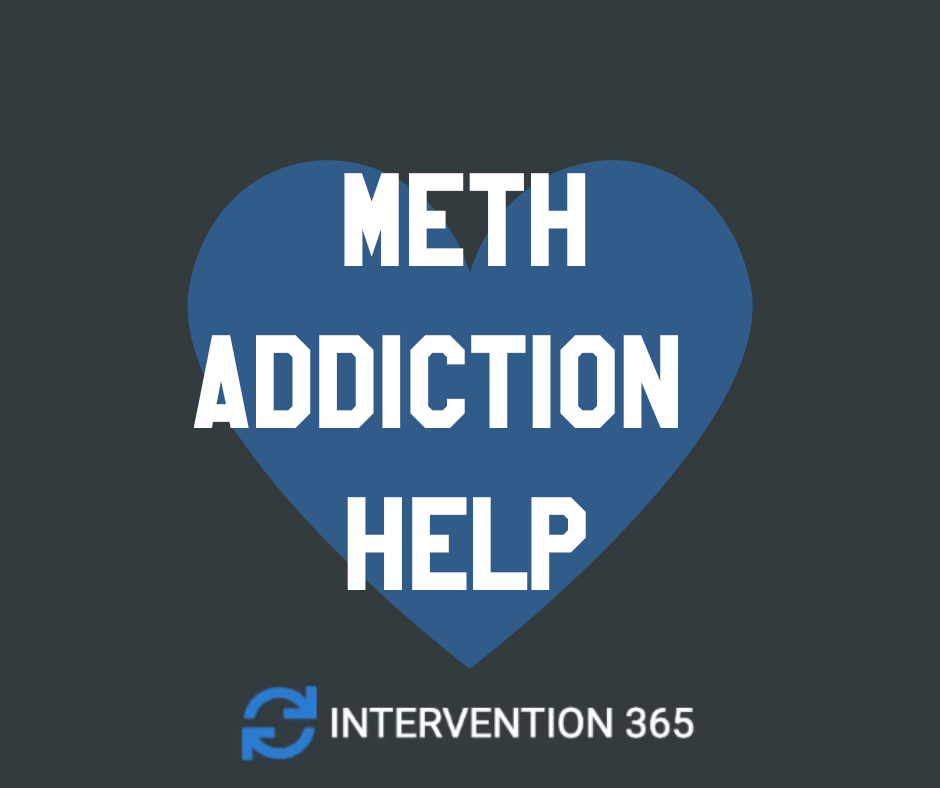Meth Addiction Help

Help For Meth Addiction
Meth Addiction Help: Finding Hope and Healing
Are you or someone you know struggling with meth addiction? You're not alone. Methamphetamine addiction is a serious and devastating issue affecting individuals and families across the country. But there is hope for recovery, and we are here to guide you on your journey towards a healthier and brighter future. Intervention 365 will guide your family with an addiction intervention or if they are ready for substance abuse treatment we can guide them into detox or rehab.
Understanding Meth Addiction: The Menace Within
Methamphetamine, commonly known as meth, is a potent stimulant that can quickly lead to addiction. It alters the brain's chemistry, creating intense feelings of euphoria and energy, but these effects come at a high cost. Long-term use of meth can result in severe physical and mental health consequences, making it crucial to seek help as soon as possible.
The Intervention Process: A Lifeline for Recovery
When addiction takes hold, it affects not only the individual but also their entire support system. Staging an intervention can be a transformative moment that opens the door to healing. Our experienced interventionists are skilled in guiding families through this delicate process, offering support, compassion, and hope. Together, we can break through denial and help your loved one embrace the path to recovery.
Comprehensive Treatment: A Pathway to Lasting Recovery
Every person's journey to recovery is unique, and it requires a personalized approach to address their specific needs. Our team of experts is committed to providing individualized treatment plans, combining evidence-based therapies, counseling, and medical support to address the physical, emotional, and psychological aspects of meth addiction. From medical detox to outpatient care and aftercare, we'll walk with you every step of the way.
Alarming Statistics about Meth Addiction: Shattering Illusions
The impact of meth addiction on society is staggering. According to the National Institute on Drug Abuse (NIDA), over 1.6 million Americans reported using meth in the past year. Methamphetamine-related deaths have been on the rise, increasing by 4.8 times from 2010 to 2018, according to the Centers for Disease Control and Prevention (CDC). This underscores the urgency of seeking professional help for this dangerous addiction.
Dangers and Withdrawal Symptoms: Navigating the Challenges
Meth withdrawal can be a daunting process, characterized by intense cravings, fatigue, depression, anxiety, and even psychosis. Our caring team understands the challenges of detoxification and will provide medical supervision and support to ensure a safer and more comfortable experience. Don't face withdrawal alone; let us help you take the first step towards recovery.
Taking the First Step: Reaching Out for Help
Acknowledging the need for help is a courageous first step towards reclaiming your life from meth addiction. If you or someone you love is struggling, don't wait to seek assistance. Our team at Intervention 365 is dedicated to providing compassionate and effective meth addiction treatment. Take the leap towards a brighter future today – contact us to start your journey to lasting recovery.
Sources:
- National Institute on Drug Abuse (NIDA)
- Centers for Disease Control and Prevention (CDC)
Does Health Insurance Cover Meth Addiction Help
I365 will help you find a detox or rehab for meth addiction help.
Meth addiction is a chronic, relapsing disorder characterized by a compulsive need for methamphetamine, a powerful stimulant drug. Continued meth use alters the brain's reward system, leading to intense cravings and addiction. Regular use can quickly escalate into dependency, making it challenging to quit without professional help.
Meth withdrawal symptoms can be severe and include fatigue, depression, increased appetite, intense drug cravings, and sleep disturbances. The duration and intensity of withdrawal can vary depending on the individual's level of use, but typically, acute withdrawal may last for several days to a few weeks.
Yes, medical detox is essential for safe and effective meth withdrawal. Attempting to quit meth cold turkey can lead to dangerous physical and psychological side effects. Medical detox in a supervised environment helps manage withdrawal symptoms and ensures the individual's safety throughout the process.
At present, there are no specific FDA-approved medications for treating methamphetamine withdrawal. However, healthcare professionals may use supportive medications to alleviate certain symptoms, such as antidepressants for mood stabilization or sleep aids for insomnia. The focus of treatment remains on comprehensive support and therapy to address the underlying causes of addiction.
Therapy plays a crucial role in meth addiction treatment by addressing the psychological and behavioral aspects of addiction. Evidence-based therapies like Cognitive Behavioral Therapy (CBT), Contingency Management (CM), and Motivational Interviewing (MI) are commonly used to help individuals modify destructive behaviors, develop coping strategies, and maintain abstinence.
The duration of meth addiction treatment can vary based on individual needs and progress. In general, residential or inpatient treatment programs can last from 30 to 90 days, while outpatient programs may continue for several months or longer. Aftercare and ongoing support are vital components of long-term recovery.
Yes, family involvement is crucial for successful meth addiction treatment. Family members can provide valuable support, understanding, and encouragement throughout the recovery process. Family therapy sessions also help address family dynamics and promote healthier communication and relationships.
Yes, support groups like Narcotics Anonymous (NA) can be immensely helpful in meth addiction recovery. These groups provide a safe and non-judgmental space for individuals to share their experiences, receive support from others who have faced similar struggles, and learn valuable coping skills to maintain sobriety.
Finding the right meth addiction treatment program involves considering individual needs, preferences, and the severity of addiction. It's essential to research reputable treatment centers, read reviews, and speak with admissions staff to determine the most suitable program. Seeking guidance from addiction specialists or interventionists can also be beneficial.
Yes, meth addiction can be treated successfully with the right combination of therapies, support, and ongoing care. While recovery may present challenges, seeking professional help and committing to a comprehensive treatment program significantly increase the chances of achieving lasting sobriety and a healthier life.

